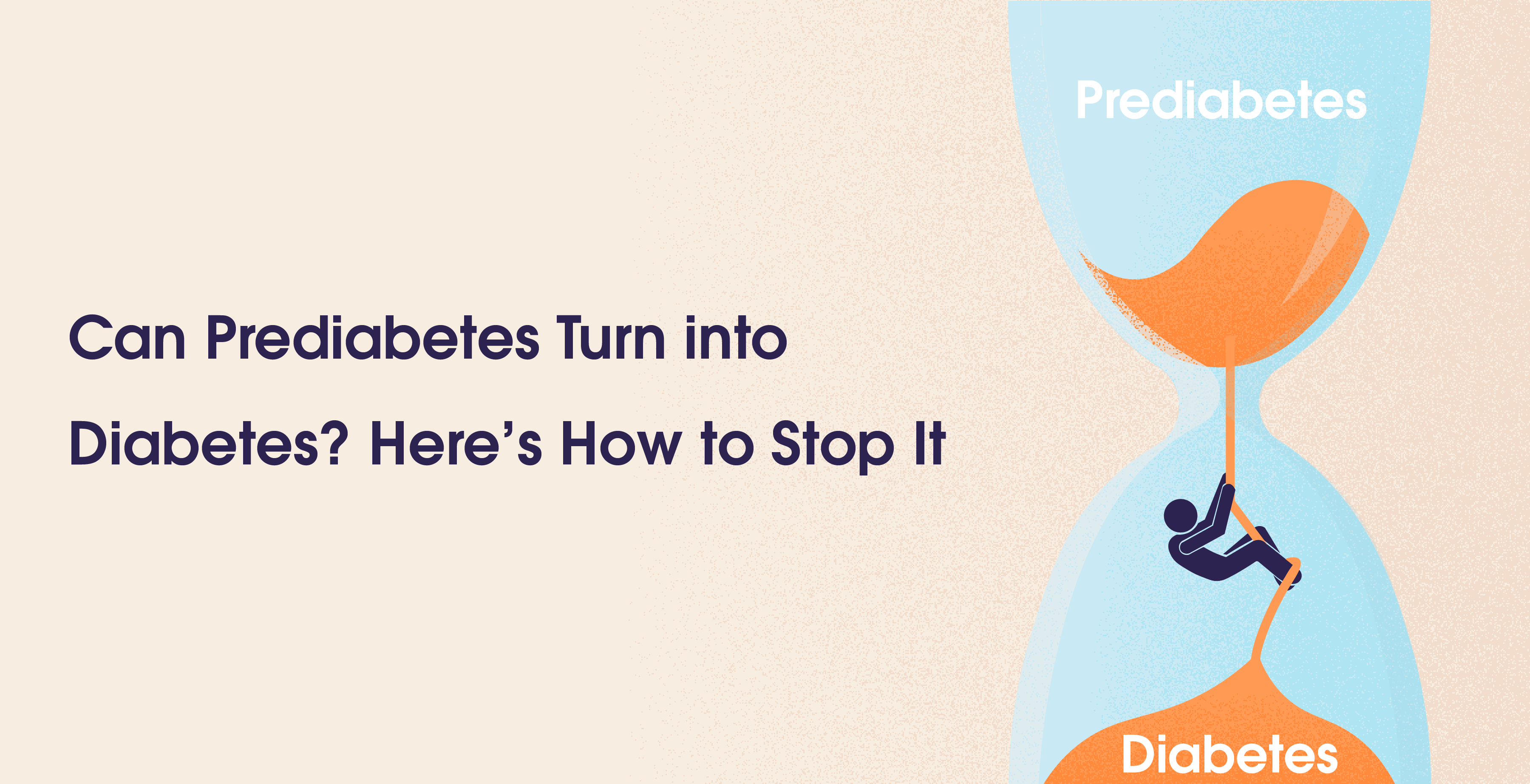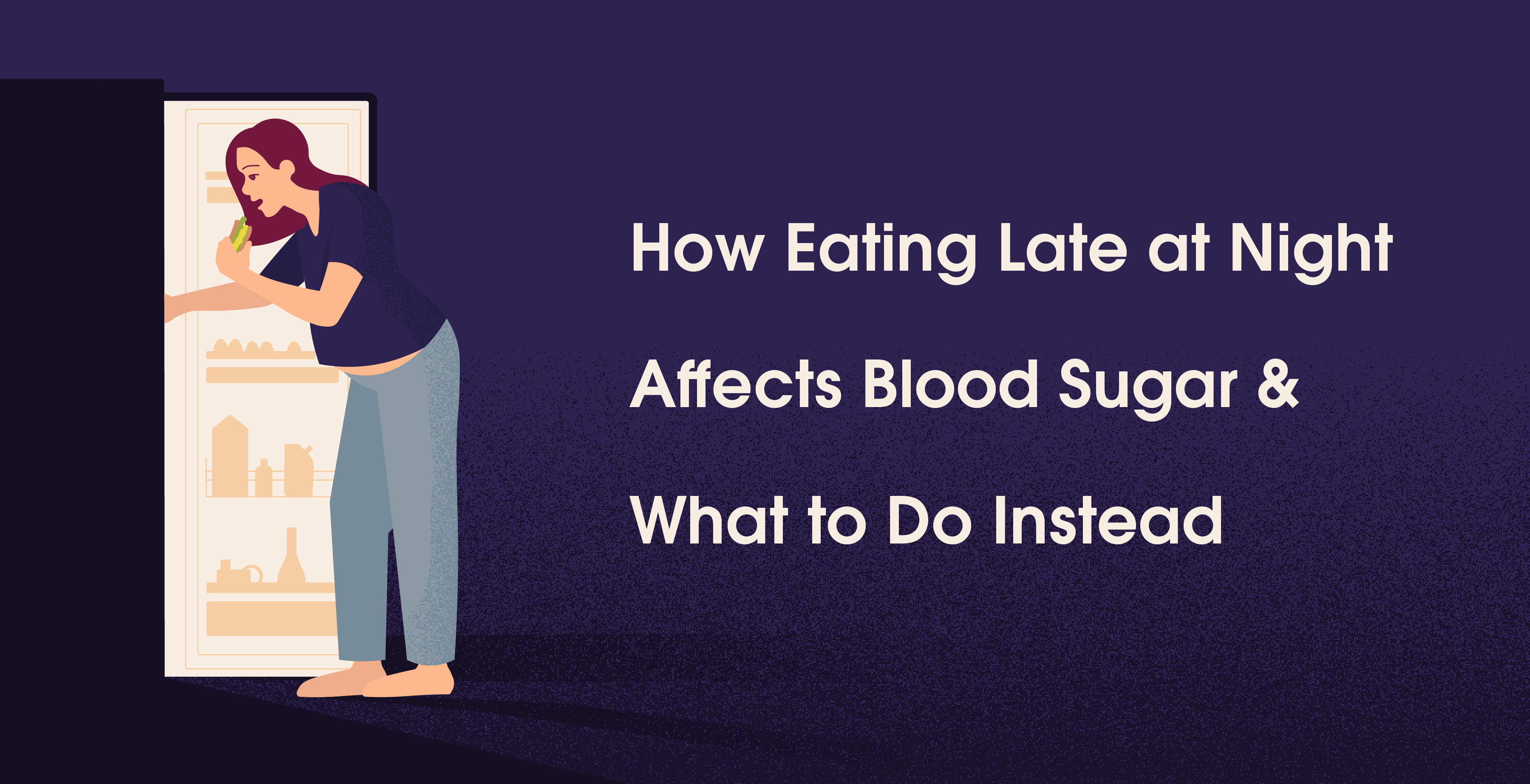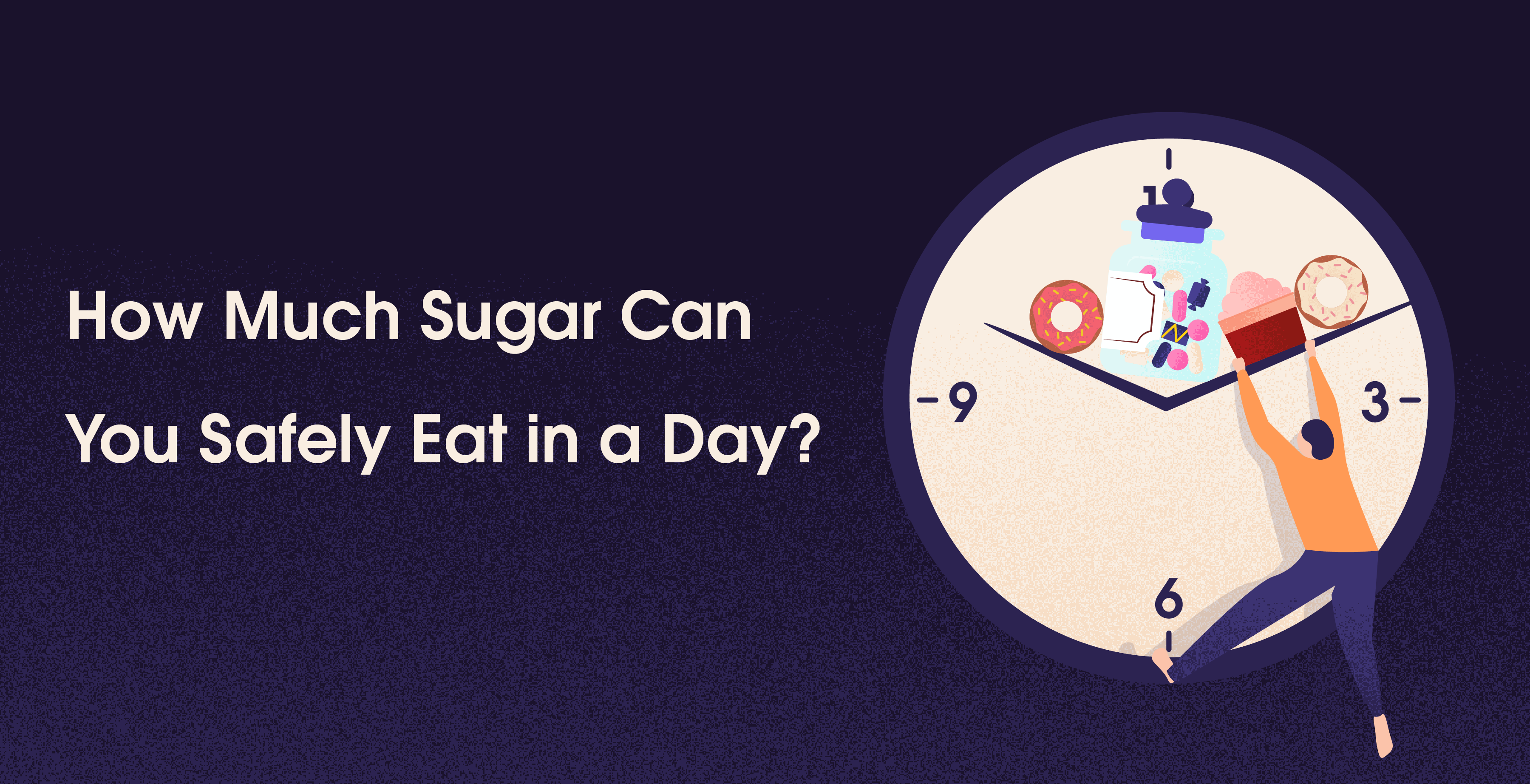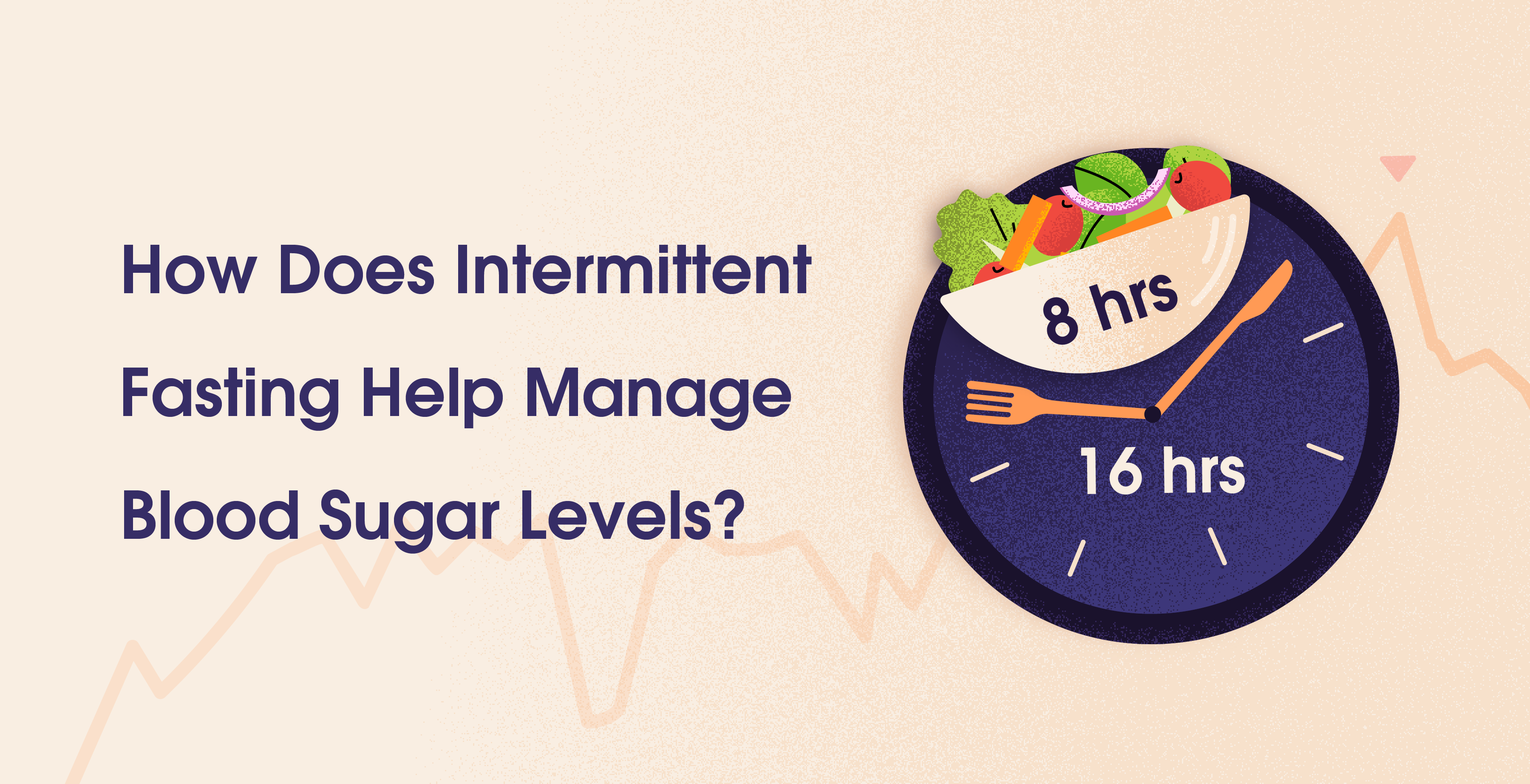Can Prediabetes Turn into Diabetes? Here’s How to Stop It
Feb 13, 2025
Sayfali Rawlani



Table Of Contents
So, you just found out you have prediabetes. Maybe your doctor tossed the word out casually, or maybe you were deep-diving the internet, trying to make sense of your random fatigue and weird sugar cravings. Either way, that little word—prediabetes—can feel like a loaded gun.
Does this mean diabetes is inevitable? Is your body already on a fast track to insulin disaster?
Not necessarily.
Here’s the thing—prediabetes is more like a flashing yellow light than a red one. It’s a heads-up, not a final sentence. Your body is trying to tell you something, and if you listen now, you can absolutely turn things around.
But let’s get one thing straight—this isn’t about punishing yourself, surviving on plain salads, or working out until you’re half dead. That’s not sustainable. Instead, we’re talking about small, simple shifts that keep you feeling good while steering your body away from diabetes.
Let’s get into it.
Highlights
Prediabetes is a warning sign, not a life sentence—your body is asking for a reset.
Insulin resistance causes blood sugar to creep up, leading to diabetes if left unchecked.
Small, manageable changes can reverse prediabetes and prevent diabetes.
Ditch ultra-processed carbs and swap them for fiber-rich, whole foods.
Protein keeps cravings in check and stabilizes blood sugar levels.
Moving your body—whether walking, dancing, or light workouts—improves insulin sensitivity.
Sleep is a game-changer; poor rest messes with blood sugar and cravings.
Stress hormones spike blood sugar—find ways to relax and reset.
Tracking progress with a glucometer helps you make smarter choices.
This is your chance to take control—small shifts add up to big results.
How Prediabetes Creeps Into Diabetes
Your body is designed to handle sugar—until it isn’t.
Here’s what’s going down inside: every time you eat, your body breaks food down into sugar (glucose) and dumps it into your bloodstream. Normally, insulin (a hormone made by your pancreas) steps in like a traffic cop, directing sugar out of your blood and into your cells, where it’s used for energy.
But when you have prediabetes, your body isn’t responding to insulin the way it should. The signals get crossed. Your cells stop listening. So your pancreas, in panic mode, cranks out more insulin, trying to force the sugar into your cells.
For a while, this works. But at some point, your pancreas gets tired, insulin can’t keep up, and your blood sugar starts creeping higher and higher. And that, my friend, is how prediabetes turns into full-on diabetes.
The good news? You can stop this.
Here’s How to Take Back Control
Reversing prediabetes doesn’t mean overhauling your life overnight. Forget drastic diets and punishing workouts—this is about stacking up small, smart choices until your body starts working for you again.
Fix Your Food—Without Hating Life
Nobody is asking you to swear off bread forever or start measuring your meals with a microscope. But let’s be real—what you eat is the biggest factor here.
Here’s the deal:
Ditch the ultra-processed junk. White bread, sugar-loaded cereals, packaged snacks—these spike blood sugar fast and crash just as hard.
Add fiber to every meal. Leafy greens, lentils, nuts, seeds—fiber slows sugar absorption, keeping your levels steady.
Protein is your friend. Eggs, tofu, paneer, Greek yogurt—these help keep cravings in check.
And no, you don’t need to cut carbs completely—just choose better ones. Swap white rice for quinoa, white bread for sourdough, and regular pasta for lentil-based versions.
Move Your Body—But Make It Fun
Exercise isn’t just about burning calories—it’s a magic trick for blood sugar. Moving your muscles makes them soak up sugar from your bloodstream without needing extra insulin.
But listen, this doesn’t mean you need to hit the gym every day. Even simple stuff works:
Take a brisk walk after meals.
Do squats while brushing your teeth.
Dance around your living room for ten minutes.
It all counts. Just move.
Prioritize Sleep (No, Really)
Think of your body like your phone. If you don’t charge it, it won’t run properly. Sleep is that important for keeping blood sugar in check. When you skimp on rest, your insulin sensitivity drops and your cravings for junk food skyrocket.
If you’re not getting 7 to 9 hours of solid sleep, fix that first.
Manage Stress (Because It’s Wrecking You)
Ever notice how stress makes you crave all the wrong foods? That’s because stress hormones (like cortisol) make your blood sugar rise.
The fix? Find something that chills you out. Meditate, walk, read, journal—whatever helps you decompress. Stress is sneaky, but keeping it in check helps everything.
Track What’s Happening (Without Obsessing)
You don’t need to be glued to a glucose monitor, but keeping an eye on your numbers helps. A simple glucometer (or a CGM if you’re fancy) can show you how your body reacts to different foods, sleep, and movement. The more you know, the easier it is to make changes that stick.
This Is Your Moment
Look, prediabetes is serious—but it’s also fixable.
And fixing it doesn’t mean starving, suffering, or spending hours in the gym. It’s about making small, consistent choices that add up to a healthier, stronger you.
This is your chance to rewrite the script. To choose a different path. To listen to your body and make changes before diabetes takes the wheel.
So start where you are. Pick one thing from this list and commit to it. Then, stack another.
You’ve got this.
References
So, you just found out you have prediabetes. Maybe your doctor tossed the word out casually, or maybe you were deep-diving the internet, trying to make sense of your random fatigue and weird sugar cravings. Either way, that little word—prediabetes—can feel like a loaded gun.
Does this mean diabetes is inevitable? Is your body already on a fast track to insulin disaster?
Not necessarily.
Here’s the thing—prediabetes is more like a flashing yellow light than a red one. It’s a heads-up, not a final sentence. Your body is trying to tell you something, and if you listen now, you can absolutely turn things around.
But let’s get one thing straight—this isn’t about punishing yourself, surviving on plain salads, or working out until you’re half dead. That’s not sustainable. Instead, we’re talking about small, simple shifts that keep you feeling good while steering your body away from diabetes.
Let’s get into it.
Highlights
Prediabetes is a warning sign, not a life sentence—your body is asking for a reset.
Insulin resistance causes blood sugar to creep up, leading to diabetes if left unchecked.
Small, manageable changes can reverse prediabetes and prevent diabetes.
Ditch ultra-processed carbs and swap them for fiber-rich, whole foods.
Protein keeps cravings in check and stabilizes blood sugar levels.
Moving your body—whether walking, dancing, or light workouts—improves insulin sensitivity.
Sleep is a game-changer; poor rest messes with blood sugar and cravings.
Stress hormones spike blood sugar—find ways to relax and reset.
Tracking progress with a glucometer helps you make smarter choices.
This is your chance to take control—small shifts add up to big results.
How Prediabetes Creeps Into Diabetes
Your body is designed to handle sugar—until it isn’t.
Here’s what’s going down inside: every time you eat, your body breaks food down into sugar (glucose) and dumps it into your bloodstream. Normally, insulin (a hormone made by your pancreas) steps in like a traffic cop, directing sugar out of your blood and into your cells, where it’s used for energy.
But when you have prediabetes, your body isn’t responding to insulin the way it should. The signals get crossed. Your cells stop listening. So your pancreas, in panic mode, cranks out more insulin, trying to force the sugar into your cells.
For a while, this works. But at some point, your pancreas gets tired, insulin can’t keep up, and your blood sugar starts creeping higher and higher. And that, my friend, is how prediabetes turns into full-on diabetes.
The good news? You can stop this.
Here’s How to Take Back Control
Reversing prediabetes doesn’t mean overhauling your life overnight. Forget drastic diets and punishing workouts—this is about stacking up small, smart choices until your body starts working for you again.
Fix Your Food—Without Hating Life
Nobody is asking you to swear off bread forever or start measuring your meals with a microscope. But let’s be real—what you eat is the biggest factor here.
Here’s the deal:
Ditch the ultra-processed junk. White bread, sugar-loaded cereals, packaged snacks—these spike blood sugar fast and crash just as hard.
Add fiber to every meal. Leafy greens, lentils, nuts, seeds—fiber slows sugar absorption, keeping your levels steady.
Protein is your friend. Eggs, tofu, paneer, Greek yogurt—these help keep cravings in check.
And no, you don’t need to cut carbs completely—just choose better ones. Swap white rice for quinoa, white bread for sourdough, and regular pasta for lentil-based versions.
Move Your Body—But Make It Fun
Exercise isn’t just about burning calories—it’s a magic trick for blood sugar. Moving your muscles makes them soak up sugar from your bloodstream without needing extra insulin.
But listen, this doesn’t mean you need to hit the gym every day. Even simple stuff works:
Take a brisk walk after meals.
Do squats while brushing your teeth.
Dance around your living room for ten minutes.
It all counts. Just move.
Prioritize Sleep (No, Really)
Think of your body like your phone. If you don’t charge it, it won’t run properly. Sleep is that important for keeping blood sugar in check. When you skimp on rest, your insulin sensitivity drops and your cravings for junk food skyrocket.
If you’re not getting 7 to 9 hours of solid sleep, fix that first.
Manage Stress (Because It’s Wrecking You)
Ever notice how stress makes you crave all the wrong foods? That’s because stress hormones (like cortisol) make your blood sugar rise.
The fix? Find something that chills you out. Meditate, walk, read, journal—whatever helps you decompress. Stress is sneaky, but keeping it in check helps everything.
Track What’s Happening (Without Obsessing)
You don’t need to be glued to a glucose monitor, but keeping an eye on your numbers helps. A simple glucometer (or a CGM if you’re fancy) can show you how your body reacts to different foods, sleep, and movement. The more you know, the easier it is to make changes that stick.
This Is Your Moment
Look, prediabetes is serious—but it’s also fixable.
And fixing it doesn’t mean starving, suffering, or spending hours in the gym. It’s about making small, consistent choices that add up to a healthier, stronger you.
This is your chance to rewrite the script. To choose a different path. To listen to your body and make changes before diabetes takes the wheel.
So start where you are. Pick one thing from this list and commit to it. Then, stack another.
You’ve got this.
References
Table Of Contents
Table Of Contents
Table Of Contents
Read More


Mar 25, 2025
Sayfali Rawlani


Mar 20, 2025
Sayfali Rawlani


Mar 6, 2025
Sayfali Rawlani



Company
Copyright © 2025 trst health. All right reserved.

